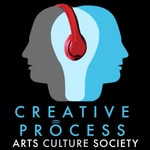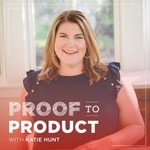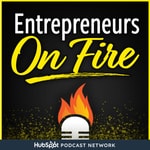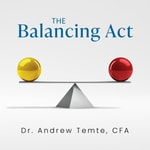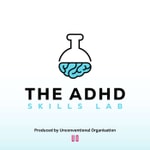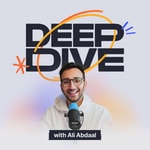Hacking Your ADHD – Details, episodes & analysis
Podcast details
Technical and general information from the podcast's RSS feed.
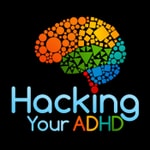
Hacking Your ADHD
William Curb
Frequency: 1 episode/8d. Total Eps: 289

ADHD can be a struggle, but it doesn't always have to be. Every Monday, join William Curb, as he explores ways that you can work with your ADHD brain to do more of the things you want to do. If you have ADHD or someone in your life does and you want to get organized, get focused and get motivated then this podcast is for you. Part of the ADHD reWired Podcast Network.
Recent rankings
Latest chart positions across Apple Podcasts and Spotify rankings.
Apple Podcasts
🇨🇦 Canada - mentalHealth
29/07/2025#22🇨🇦 Canada - healthAndFitness
29/07/2025#59🇬🇧 Great Britain - mentalHealth
29/07/2025#90🇺🇸 USA - mentalHealth
29/07/2025#48🇨🇦 Canada - mentalHealth
28/07/2025#30🇨🇦 Canada - healthAndFitness
28/07/2025#78🇬🇧 Great Britain - mentalHealth
28/07/2025#76🇺🇸 USA - mentalHealth
28/07/2025#49🇨🇦 Canada - mentalHealth
27/07/2025#28🇨🇦 Canada - healthAndFitness
27/07/2025#72
Spotify
No recent rankings available
Shared links between episodes and podcasts
Links found in episode descriptions and other podcasts that share them.
See all- https://www.hackingyouradhd.com/contact
384 shares
- https://www.adhdessentials.com/
205 shares
- https://www.patreon.com/HackingYourADHD
367 shares
RSS feed quality and score
Technical evaluation of the podcast's RSS feed quality and structure.
See allScore global : 48%
Publication history
Monthly episode publishing history over the past years.
Outsourcing Executive Function with AI
Episode 192
lundi 2 septembre 2024 • Duration 14:32
Hey Team!
While AI has become a buzzword that has lost much meaning, there are still many use cases that can help with our ADHD. One of the places that I have been enjoying exploring is how I can outsource some of my executive functions to these applications so that I can save my brain for the important stuff.
In today’s episode, we’ll first examine executive function so that we know what we’re really working with here. Then, we’ll explore a number of tools that we can use—from large language models (LLMs) to tools to help with your calendar, and even smaller tools fit for goblins.
Also, before we get into anything about AI, I do want to make a quick disclaimer about some of the ethics of using these tools and also how they were created. While these tools can be great in assisting with what we create, it’s also important that we’re still doing our own work and not passing off what LLM did as our own work. I have been using some of these tools to help create episodes, and even cite some of the ways I am doing so in this episode. But what I’m not doing is feeding a prompt into an LLM and just using that. That would be lazy, irresponsible and not something that anyone wants. However, just because I’m not doing that doesn’t mean that other people aren’t—this is something to particularly look out for with new books about ADHD that aren’t coming from established authors and creators.
Additionally, there are ethical concerns about how the training data for many of the LLMs was obtained. This is especially a concern in regard to the lack of content used to source this material. This has been seen more in terms of art and how those models are trained without the artist's knowledge, but it also applies to written word. While I still have been using these systems, I think it is important that we encourage more ethical sourcing of training data and only using data with consent.
If you’d like to send me a question answer on the show feel free to head over to hackingyouradhd.com/contact and click the orange button
Support me on Patreon
Ask me a question on my Contact Page
Find the show note at HackingYourADHD.com/192
This Episode's Top Tips
- We can better understand executive function through the lens of self-regulation. There are three core areas that we can look at here: working memory, cognitive flexibility, and inhibitory control.
- Tools like LLMs can help us create starting points for our work. By prompting the LLM to ask us questions instead it can help us better think through our problems.
- When looking to add a new tool to your repertoire, think about what problem it is going to be solving for rather than just looking for the new shiny.
Easy Mode
Episode 191
lundi 26 août 2024 • Duration 13:22
While ADHD is described as life on Hard Mode, that phrasing got me thinking about what would life look on easy mode. And more importantly, how can we make our lives feel more like that?
In this episode, we’re going to explore what life on easy mode might look like and discuss actionable strategies to shift the dynamic of living with ADHD so that it doesn’t always feel like an uphill battle. How we can take steps to shift our ADHD from making life a struggle to something more manageable. From simplifying routines to harnessing the power of small changes there are a lot of ways that we can work on dialing down that difficulty.
If you’d like to send me a question answer on the show feel free to head over to hackingyouradhd.com/contact and click the orange button
Support me on Patreon
Ask me a question on my Contact Page
Find the show note at HackingYourADHD.com/191
This Episode's Top Tips
- We can use the focusing question from the book The One Thing: "What’s the ONE Thing I can do such that by doing it, everything else will be easier or unnecessary?" to help us identify not only what would be most impactful for us to do, but what we should prioritizing
- With the focusing question, we can also leverage the Domino Effect. We often don’t need to focus on the big things that we need to do but rather on the small and significant tasks that can set off a chain reaction of success, making other tasks easier or unnecessary.
- Focus on progress, not perfection. Aim for small, consistent improvements rather than drastic changes, and celebrate every small win along the way.
Building Systems When You Are Consistently Inconsistent
Episode 186
lundi 24 juin 2024 • Duration 16:29
Hey team!
I’ve been working on this episode for quite a while now and was kind of worried it would never be finished, but I managed to salvage what was useful and polish it up quite a bit.
Today, we're discussing long-standing goals and how we can create systems that help us achieve them. I’m really interested in exploring this topic at length, so I expect this won’t be the only episode we have discussing systems.
In this episode, we'll be diving into the tools and strategies that make our ADHD work for us, not against us, and I'll share some of my own experiences along the way with developing these systems. We’ll also examine how we create systems and what really goes into making them work the way we want them to.
Sign up for my Newsletter Any And All Distractions
Feel free to ask me a question on my Contact Page
Find the full show notes at HackingYourADHD.com/186
This Episode's Top Tips
- Plan with your natural habits in mind rather than striving for unrealistic perfection. Work on developing systems that you can rely on, even when you're not at your best.
- Avoid overly complex systems that can create more points of failure. Remember that executive dysfunction affects our ability to follow through with our best intentions. By simplifying our systems, we can lower the bar for entry and make it easier to get started.
- Understand that no system will be perfect, and it is important to adjust and maintain it as needed. No system is going to “fix” our ADHD, and that shouldn’t be our goal when building our systems.
Creativity and ADHD with Saman Kesh
Episode 113
lundi 25 juillet 2022 • Duration 54:00
Today we’ve got a bit of a different episode coming your way - in this episode, I talk with award-winning director Saman Kesh. Kesh is known for his narrative music video work with artists such as Basement Jaxx, Calvin Harris, and Placebo.
In our broad-ranging conversation, we talk about the creative process and having ADHD, medication, therapy, and a whole host of other topics. This episode is a bit more of the practical side of managing ADHD, and there are great tips littered throughout the episode.
Support me on Patreon
Feel free to ask me a question on my Contact Page
Find the show note at HackingYourADHD.com/samankesh
Celebrating Your Wins (Rebroadcast)
lundi 18 juillet 2022 • Duration 15:57
I want to start this episode off by saying that this is something I'm bad at - and not in the sense that what I do to celebrate is bad or that I'm not celebrating the small wins throughout my day. It's bad in the sense that I almost entirely skip the whole thing.
Recently this podcast tipped past half a million downloads. That's a pretty big milestone and is pretty indicative of how successful this endeavor has been. But it was barely a blip for me. I didn't want to acknowledge the success because it can be hard for me to acknowledge when I do things well.
So this episode is as much for me as it is for all of you and in this episode, we're going to be exploring what it means to have small wins and also how we can celebrate them.
Support me on Patreon
Connect with me on:
Facebook
Twitter
Instagram
or ask me a question on my Contact Page
Find the full show note at HackingYourADHD.com/winning
This Episode's Top Tips
- Celebrating our wins is a way to boost our confidence and it will actively encourage us to seek out that same success again.
- We can differentiate intrinsic and extrinsic motivation by thinking of intrinsic as what to do because it's interesting and inherently satisfying. Extrinsic motivation comes from rewards or from avoiding punishment. Both can be important parts of how we celebrate our success.
- Start celebrating your wins by acknowledging when they happen and then letting yourself do something fun to celebrate that success.
- Don't get down on yourself when the wins aren't coming - we're not always going to have smooth sailing, but only focusing on what didn't happen tends to make us overlook all the good things that did happen.
Too Much
Episode 111
lundi 27 juin 2022 • Duration 14:01
Over the last few weeks, I have hit a number of points where it all just felt like too much - now there are a number of things that have contributed to this, but one of the keys always behind when I get overwhelmed is doing too much. This is despite the fact that even when I have too much on my plate it always feels like I should be doing more. That I could squeeze in just a few more things and then… well then I’d probably also still be trying to add more things to do.
In today’s episode, we’re going to be exploring why doing more isn’t usually the best thing for us to pursue and how doing less can actually help us actually accomplish the things we really want to do.
Support me on Patreon
Feel free to ask me a question on my Contact Page
Find the show note at HackingYourADHD.com/111
This Episode's Top Tips
- Prioritizing with ADHD can be difficult and that is only made more difficult as we add more and more to what we’re doing. When we’re able to pare down the amount we’re doing we can then better prioritize all the things that actually need to get done.
- We don’t have to do everything that ends up on our to-do lists - it’s okay to cross things out even if we haven’t completed them.
- We only have so much cognitive capacity to focus on any given thing and the more open loops we the more we are going to be drawing on that cognitive capacity. Our best bet for dealing with open loops is to work on simply opening fewer of them by taking less on.
Unconventional Organisation with Skye Rapson
Episode 110
lundi 20 juin 2022 • Duration 36:58
Hey team, today I’m talking with Skye Rapson of Unconventional Organisation, a New Zealand-based coaching group that specializes in online coaching. They focus on providing research-backed and strengths-based ADHD support to help you get unstuck in your life.
In our conversation, we cover a lot of different areas, including one that I’ve really been interested in recently, systems. We get into what systems are and how important it is to tailor these systems to our own ADHD and then how we can even do that.
Support me on Patreon
Connect with me on:
Facebook
Twitter
Instagram
or ask me a question on my Contact Page
Find the show note at HackingYourADHD.com/unconventionalorg
Checkout Unconventional Organisation
The Wandering Mind and Hyperfocus (Rebroadcast)
lundi 13 juin 2022 • Duration 23:09
One of the thoughts I kept coming back to while working on my episode's on multitasking was what it really meant to be multitasking. I settled on using the idea of doing two cognitive tasks at the same time, but that left me with another quandary - what about when I'm doing one thing and just thinking about doing something else. Surely just thinking about something else wouldn't count as multitasking.
But still... There have absolutely been times when I've been thinking about something else and found myself getting engrossed in my thoughts and losing track of conversations or what I was doing. Clearly, my thoughts can play a big role in what I'm doing and if my focus is somewhere else then it certainly isn't here in the present.
Today we're going to explore what our brain is doing here - how our thoughts can kind of run away with us. We'll also be looking at hyperfocus and then bringing together how these things relate.
Support me on Patreon
Connect with me on:
Facebook
Twitter
Instagram
or ask me a question on my Contact Page
Find the show note at HackingYourADHD.com/wanderingmind
This Episode's Top Tips
- The Default Mode Network is a collection of brain regions that are responsible for daydreaming, mind wandering and are primarily active in our wakeful resting state.
- In neurotypical brains the Default Mode Network disengages when we start working on task-specific work - this relationship doesn't hold up in ADHD brains and is why we can drift off in thought while trying to do complex tasks.
- Hyperfocus is when our concentration engages so much that we kind of just tune out the rest of the world. It can be a double-edged sword, however, because we can also miss cues to eat, use the bathroom and overuse our executive functions, and leave us completely drained when we come out of it.
- We can help both our default mode network and our hyperfocus by taking breaks throughout the day. We can go further by using those breaks for positive constructive daydreaming where we let our minds wander with purpose.
The Myth of Lazy (Rebroadcast)
lundi 6 juin 2022 • Duration 17:18
In last week's episode, I talked about the Hot-Cold Empathy Gap and how it can be hard for us to really remember or predict how our state is going to affect our actions - one of the consequences of this is that we often label ourselves as lazy when we didn't do something. Our cold state brain tells us that we should have just done the thing, all the while neglecting how we felt. This disconnect is what leads to a lot of our self-judgment and in particular, those of us with ADHD often find ourselves labeling ourselves as lazy.
Why didn't I walk the dogs?
I was feeling lazy - or maybe I feel overwhelmed with work or maybe I couldn't find the leashes.
When we don't do something it's easy to label it as lazy, but often that doesn't tell us what was really going on.
Today we're going to be exploring the idea of lazy and how what we might want to start looking at it a bit differently.
Support me on Patreon
Connect with me on:
Twitter
or ask me a question on my Contact Page
Find the show note at HackingYourADHD.com/lazymyth
Why We Make Decisions We Don't Understand (Rebroadcast)
lundi 30 mai 2022 • Duration 14:08
Why do we make bad decisions in the moment?
We've all done things that we regret doing right? yeah me, neither - but let's say hypothetically there was something that we regretted doing - something that we said or did that we feel like doesn't really reflect on as a person.
Why is it I can have the best of intentions and still when it comes time I still make the wrong decision?
Today we're going to be exploring the hot-cold empathy gap and why it can be so difficult for us to predict what we're actually going to do in the moment.
Support me on Patreon
Connect with me on:
Twitter
or ask me a question on my Contact Page
Find the show note at HackingYourADHD.com/empathygap
This Episode's Top Tips
- The hot-cold empathy gap occurs when we fail to predict how our emotions are going to affect our decision-making when we're in that state.
- This doesn't only apply to things like being angry or depressed but can also apply to our motivation or energy levels. Our ADHD can easily let us overcommit on projects because we fail to predict that we might have less drive and motivation when it comes time to actually do the task.
- We can work on mitigating some of the effects of the hot-cold empathy gap by making the decisions we want to make easier to make in the moment. We can also use tools like accountability and breaking down our tasks to keep us on track.
